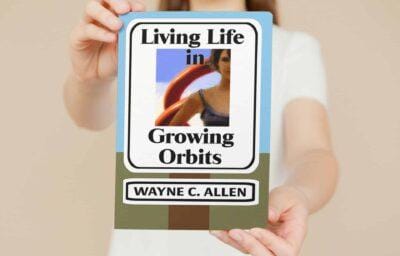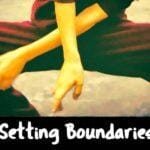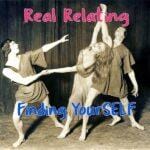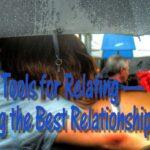- Bring Wisdom — 12 Ideas
- About Anxiety — 12 Ideas
- About Taking Action — 12 Ideas
- About Self Actualizing — 12 Ideas
- About Results — 12 Ideas
- About Mind Movies — 12 Ideas
- About Knowing Yourself — 12 Ideas
- About Being Chained – 12 Ideas Series
- About I‑am-ness — 12 Ideas
- About Happiness – 12 Ideas
- About No Past – 12 Ideas
- About Embodiment — 12 Ideas
Knowing Yourself — I suspect that most people are more concerned with perfecting their defensiveness and whining than they are with radically altering their way of being in the world.

Living Life in Growing Orbits is our workbook.
52 weeks of daily exercises designed to help you figure yourself out.
Check out Living Life in Growing Orbits on our site.
Direct link to Amazon
Purchase digital versions (Apple, Nook, Kobo, etc.) from this page
Growing up means hearing hard truths about ourselves and, rather than get defensive and run around whining about being ill-treated, dealing with what is revealed. This process begins from where I am, as I calmly accept myself, and then incorporate into my self-knowing all aspects of who I am and what I am doing.
“It’s all your fault!”
I suspect that most people are more concerned with perfecting their defensiveness and whining than they are with radically altering their way of being in the world.
I am of course guilty of this, too. I remember sitting with my therapist some years ago, and going on about being hard done by. She said, “I have a book that will help you, but you have to actually follow through with what the writer suggests.” I agreed that I would.
She handed me a copy of my own book, This Endless Moment.
I took her point.
I was using the session to endlessly gripe about what I thought was happening to me. I could have been using the session productively — examining options for moving on from where I was.
I was trying to turn the session into a support session — one that supported my feeling bad about myself.
This is all too common. We are excellent at finding evidence for our pre-conceived notions.
- If I believe that I was victimized in the past, and also believe that I have no choice but to stay a victim now, all I will see are things that support my belief.
- If I think someone is behaving badly, all I will see is bad behaviour.
- If I believe that I am depressed, or manic, or confused, or stupid, I will see endless examples supporting my belief.
So, what is the “hard truth” of knowing yourself?
Well, simple. You are selecting things that support beliefs you say you want to change.
The hard truth is that what you are feeling, and how you are acting, is all about you. Out of a myriad of options, you are choosing the one(s) that lead(s) to misery, self-alienation, and confusion.
Because we get into the habit of seeing things one and only one way (in support of our belief in our “hard-done-by-ness,”) we have learned that whining gets us a certain amount of attention. People seem to feel sorry for us, make concessions to us, (so as not to have us ruffle our feathers,) do what we want them to, etc.
So, there is a benefit to our whining. We appear to be the centre of other people’s universe. Until, of course, they get sick of listening to us.

We then dump them, and blame them for being insensitive. And prove again that we are hard-done-by.
See why it’s called a “hard truth?”
Years and years of blaming others, and suddenly you wake up — to what you are doing, who you are, and how you are digging your own pit.
Choices
Insight therapy (knowing yourself) is precisely about getting us to see the games we are playing — with ourselves and others. When the insight comes, it’s like the V8 commercial — it involves a vigourous slap to the head. There’s a “Yikes! I AM doing that, aren’t I?”
The wise person then accepts the information as “so,” incorporates it into their self-definition, and proceeds to making other choices.
Others, immediately after the slap, say, “But…” but…” but…” I can’t help myself. That’s the way I am, how I was brought up, and besides, what you are suggesting is too hard, scary, complicated.” And the drama goes on.
Many are the excuses, but all of them boil down to “I am the helpless victim of…”
Being defensive simply means you are not ready to give up your beliefs and behaviours — you are, in a sense, happy to be miserable.
It’s another hard truth — all excuses are tools to delay doing your life differently.
Our approach is simple, and likely obvious by now. It’s called knowing yourself by engaging in self-accepting self-responsibility. You start by becoming aware of the games you play with yourself, and accepting that it is, indeed, you that is playing with you.
Once you make this leap, which requires learning your own patterns and also noticing your defensiveness, you begin living self-responsibly.
Self responsible living is key to knowing yourself
We consider self-responsibility to be entirely beyond simply owning that you are responsible for you. It’s also not about blaming yourself for your past errors of judgement. It’s about fully and completely accepting responsibility for your life.
Your attention shifts from blaming others, and looking outside of yourself for the source of your misery, to making elegant choices.
It’s not anyone else’s job to tell you how to live your life — that’s completely up to you. My goal is to help you to take responsibility for all of it — to own the life you have, and to manage your self and your life according to your deepest desires.
The focus then becomes “What can I do to make my life the best it can be?”
The complaining, griping, and whining are silenced, and you begin to walk your own path, into knowing yourself, to walk your own way.





